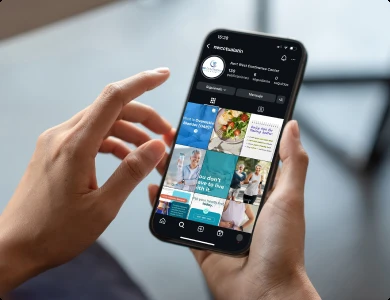Regain Your Confidence
You don’t have to live with incontinence.
Urinary Incontinence
Bowel Incontinence
Axonics Therapy

You Don’t Have to Live With Incontinence
Many patients, especially women, are told that urinary issues are just part of aging or something to expect after childbirth. But that’s not true.
These symptoms are common, but they’re not normal. You deserve to feel better, and effective treatments are available.
Our treatment options can help treat:
Urinary Incontinence
Bowel Incontinence
Overactive Bladder (OAB)
You Don’t Have to Live With Incontinence
Many patients, especially women, are told that urinary issues are just part of aging or something to expect after childbirth. But that’s not true.
These symptoms are common, but they’re not normal. You deserve to feel better, and effective treatments are available.
Our treatment options can help treat:
Urinary Incontinence
Bowel Incontinence
Overactive Bladder (OAB)

No need to worry
We accept most insurance plans.
How Our Therapy Helps You Feel Better
Incontinence often happens when the brain and bladder stop communicating properly.
Our therapy focuses on restoring that connection, so you can regain control and feel like yourself again.
Our Treatment Focuses On:
Stimulating the nerves that control your bladder and bowel.
Restoring communication between your brain and bladder.
Reducing urgency, leaks, and frequent trips to the bathroom.
Helping when other treatments haven’t worked.
How Our Therapy Helps You Feel Better
Incontinence often happens when the brain and bladder stop communicating properly.
Our therapy focuses on restoring that connection, so you can regain control and feel like yourself again.
Our Treatment Focuses On:
Stimulating the nerves that control your bladder and bowel.
Restoring communication between your brain and bladder.
Reducing urgency, leaks, and frequent trips to the bathroom.
Helping when other treatments haven’t worked.
Is This Treatment Right for You?
Our continence treatments are designed for people who haven’t found relief through other options, and are ready for a more personalized approach. You may benefit from our therapy if:
You’ve tried medication without success
You’re still struggling with leaks or urgency
You’re looking for a non-invasive, science-backed solution
Is This Treatment Right for You?
Our continence treatments are designed for people who haven’t found relief through other options, and are ready for a more personalized approach. You may benefit from our therapy if:
You’ve tried medication without success
You’re still struggling with leaks or urgency
You’re looking for a non-invasive, science-backed solution

Personalized Medication Plans That Work
At NW Continence, we only recommend medication when it’s truly needed, and always tailored to your body, lifestyle, and health history.
Our goal is to relieve symptoms and help you feel more confident and in control.
Medications may help by:
Reducing sudden urges and leaks
Improving bladder control
Supporting your confidence and daily independence
Personalized Medication Plans That Work
At NW Continence, we only recommend medication when it’s truly needed, and always tailored to your body, lifestyle, and health history.
Our goal is to relieve symptoms and help you feel more confident and in control.
Medications may help by:
Reducing sudden urges and leaks
Improving bladder control
Supporting your confidence and daily independence
Start Your Personalized Plan >

We’ll Guide You Toward a Life Without Incontinence
> 80% of people with incontinence can benefit from treatment.
Let’s work together to find the solution that fits your body and your life.
We’ll Guide You Toward a Life Without Incontinence
> 80% of people with incontinence can benefit from treatment.
Let’s work together to find the solution that fits your body and your life.
What Our Patients Think
Your Questions, Answered
What is urinary incontinence, and how is it different from bowel incontinence?
Urinary incontinence is the loss of bladder control, leading to the accidental leakage of urine. Bowel incontinence, on the other hand, involves the inability to control bowel movements, causing unexpected leakage of fecal matter. Both conditions can range from mild, occasional leaks to more severe, uncontrollable symptoms.
What are the common causes of urinary and bowel incontinence?
Causes can vary widely but may include muscle or nerve damage from surgery or childbirth, neurological disorders, urinary tract infections, constipation, and chronic diseases like diabetes. Lifestyle factors and aging can also contribute to both conditions.
Who is at risk for developing urinary and bowel incontinence?
While anyone can experience these conditions, risk factors include aging, pregnancy and childbirth, obesity, certain surgeries, and underlying health conditions such as diabetes or neurological disorders. Women are more prone to urinary incontinence, and both men and women can be affected by bowel incontinence.
How is incontinence diagnosed?
Diagnosis may involve a thorough medical history, physical examination, and specific tests such as urinalysis, bladder diary, pelvic ultrasound, and urodynamics for urinary incontinence, and anal manometry, sigmoidoscopy, or colonoscopy for bowel incontinence.
What treatment options are available for urinary and bowel incontinence?
Treatment options vary based on the type and severity of incontinence and can range from lifestyle changes, pelvic floor exercises, medication, and biofeedback to more advanced interventions like nerve stimulation therapies, injections, or surgery.
Can lifestyle changes help manage incontinence?
Yes, certain lifestyle changes can significantly help manage symptoms, including dietary modifications, regular exercise, weight loss, pelvic floor exercises, avoiding irritants like caffeine and alcohol, and practicing bladder or bowel training techniques.
Is incontinence a normal part of aging?
While incontinence is more common in older adults, it is not considered a normal part of aging. Many effective treatments and management strategies can improve symptoms, regardless of age.
How can I schedule a consultation at Northwest Continence Center?
To schedule a consultation at Northwest Continence Center, you can call our clinic directly or fill out a contact form on our website.
Our team will then reach out to you to schedule an appointment at a convenient time, where you can discuss your symptoms, treatment options, and whether Axonics Therapy might be right for you.
Are you accepting new patients?
Yes, Northwest Continence Center is currently accepting new patients. We are dedicated to providing comprehensive care for anyone experiencing urinary and fecal incontinence.
If you are interested in exploring Axonics Therapy or other treatment options for incontinence, we encourage you to contact us to schedule an initial consultation. Our team is committed to helping you find the most effective treatment to improve your quality of life.
Book Your Appointment Today
We’re here to help you feel confident and in control again. Reach out and a member of our team will get back to you shortly.
Phone
Hours
Monday - Friday: 8:30 am to 5:00 pm
Saturday - Sunday: Closed
Phone
Hours
Mon to Fri: 8:30 AM – 5:00 PM
Sat & Sun: Closed
Had a great experience with us?
We’d love to hear from you! Your feedback helps us improve and keep caring for you. Choose where you’d like to leave your review!

Let’s find the right solution together.
